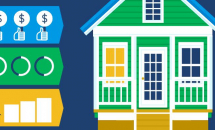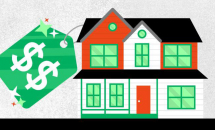With all the headlines circulating about home prices and mortgage rates, you may be asking yourself if it still makes sense to buy a home right now, or if it’s better to keep renting. Here’s some information that could help […]
What’s next for home prices and mortgage rates?
If you’re thinking of making a move this year, there are two housing market factors that are probably on your mind: home prices and mortgage rates. You’re wondering what’s going to happen next. And if it’s worth it to move […]
3 myths that are hurting home buyers and sellers
There’s no denying that it’s a tough market, with challenges for both buyers and sellers. But myths and misconceptions floating around about this market and what’s going to happen next aren’t making things any easier. So what, exactly, are those […]
Are home prices going up or down? That depends…
Media coverage about what’s happening with home prices can be confusing. A large part of that is due to the type of data being used and what they’re choosing to draw attention to. For home prices, there are two different […]
Oops! Home prices didn’t crash after all
During the fourth quarter of last year, many housing experts predicted home prices were going to crash this year. Here are a few of those forecasts: “I expect housing prices fall 10% to 15%, and the housing prices are accelerating […]
Buying a home makes more financial sense than renting
Wondering if you should continue renting or if you should buy a home this year? If so, consider this. Rental affordability is still a challenge and has been for years. That’s because, historically, rents trend up over time. Data from […]
Infographic:
Three reasons to buy a home in today’s shifting market
The housing market is moving away from the frenzy of the past year and it’s opening doors for you if you’re thinking about buying a home. Housing inventory is increasing, which means more options for your search. Plus, the intensity […]
Selling your house this Summer? Hiring a pro is critical
It can be tempting, especially with how hot the housing market has been over the past two years, to consider selling your home on your own. But today’s market is at a turning point, making it more essential than ever […]
Infographic:
Why an agent is essential when pricing your home
When it comes to pricing your home, there’s a lot to consider. The only way to ensure you price it right is by partnering with a local real estate professional. To find the best price, your agent balances current market […]
A look at home price appreciation through 2025
Home prices have increased significantly over the last year, which in turn has grown the net worth of homeowners. Appreciation and home equity are directly linked – as the value of a home increases, so does a homeowner’s equity. And […]













